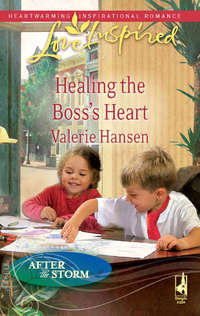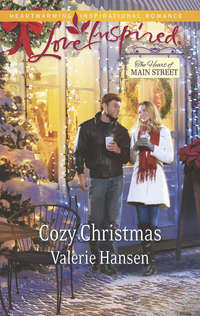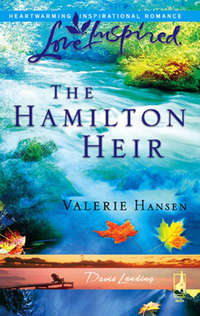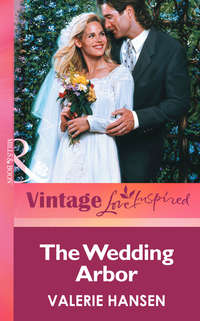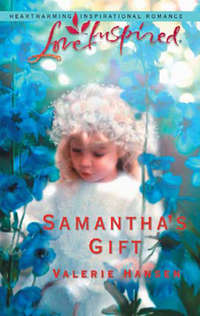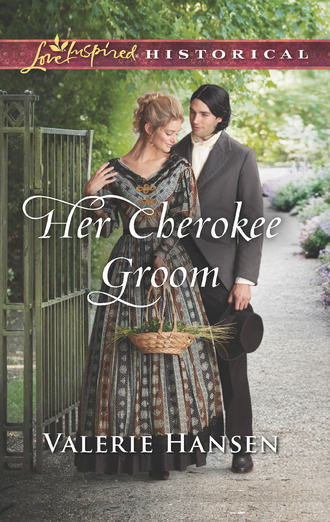
Полная версия
Her Cherokee Groom

Runaway Wedding
On the run from false murder charges, Annabelle Lang can only count on one man, Cherokee diplomat Charles McDonald. The handsome ambassador has already helped her escape Washington City. Now he’s proposing marriage to protect her honor. Though she’s losing her heart to Charles, Annabelle’s certain his offer comes from duty, not love.
Charles’s feelings for the flaxen-haired beauty go beyond mere companionship, but he’s doubtful a lady like Annabelle would ever consider him under normal circumstances. And with his family expecting him to wed a Cherokee bride, he wouldn’t have asked. If it’s more than convenience that binds Charles and Annabelle, there’s only one way to find out—he’ll have to court his own wife!
“I suggest we travel from here on as a family.”
Charles glanced at the child before turning a steady gaze on her. “He has your eyes and all of my coloring. He could easily be our son.”
“Yes, but...” Annabelle stammered.
“If we have to, we can make it official.”
Annabelle’s jaw gaped. “What?”
“Marry.”
“You should not joke about such things.”
“Believe me, I am not joking,” Charles said flatly. “It would not have to be forever if you didn’t want it to be. That way your reputation would be safe.”
But what about my heart? She let her horse fall back behind the big bay so Charles could not see her if she failed to curtail the tears threatening to roll down her cheeks.
Why weep? she asked herself.
The answer was as clear as if it had been shouted in her ear. Because I will soon be the wife of a man whose heart does not belong to me—and whom I already love.
Dear Reader,
This story takes place before the disastrous Trail of Tears, as the forced removal has come to be known. Instead of being a single event, however, it took place over time, ending with a final push in 1838 to oust those individuals and tribes who had refused to migrate west.
To make matters worse, there were warring factions among the Cherokee that each claimed authority to legally sign treaties and make promises on behalf of all. Both sides resorted to violence. The result was a painful split in the tribe and a loss of credibility in Washington.
I now live in the part of Arkansas that one of the routes, Benge’s Trail, passed through. That’s what caused me to begin this book and travel to visit the Cherokee Museum in North Carolina. I highly recommend it (Cherokeemuseum.org).
Almost all the characters in this story are actual historical figures, including the boy Johnny and the way he arrived in Washington. I have fictionalized his life, and those of others, while keeping the basic facts as true to the written record as possible.
Blessings from the Ozarks,

VALERIE HANSEN was thirty when she awoke to the presence of the Lord in her life and turned to Jesus. She now lives in a renovated farmhouse in the breathtakingly beautiful Ozark Mountains of Arkansas and is privileged to share her personal faith by telling the stories of her heart for Love Inspired. Life doesn’t get much better than that!
Her Cherokee Groom
Valerie Hansen

www.millsandboon.co.uk
He that delicately bringeth up his servant from a child shall have him become his son at the length.
—Proverbs 29:21
Thanks to my Joe for taking me to North Carolina to see the Cherokee Museum and reenactments of tribal life. And thanks to the Cherokee clans who faithfully labor to keep their history and culture alive.
Contents
Cover
Back Cover Text
Introduction
Dear Reader
About the Author
Title Page
Bible Verse
Dedication
Chapter One
Chapter Two
Chapter Three
Chapter Four
Chapter Five
Chapter Six
Chapter Seven
Chapter Eight
Chapter Nine
Chapter Ten
Chapter Eleven
Chapter Twelve
Chapter Thirteen
Chapter Fourteen
Chapter Fifteen
Chapter Sixteen
Chapter Seventeen
Chapter Eighteen
Chapter Nineteen
Chapter Twenty
Chapter Twenty-One
Chapter Twenty-Two
Chapter Twenty-Three
Chapter Twenty-Four
Extract
Copyright
Chapter One
Washington, DC—1830
“What are you doing out here? Spying?”
Seventeen-year-old Annabelle Lang was so startled by the voice she nearly gasped aloud. Her guardian’s new wife had caught her loitering in the hallway and peeking into the parlor to look at visiting dignitaries. How embarrassing.
Biting her lip, Annabelle shook her head enough to make her flaxen blond side curls swing against her rosy cheeks and replied, “No, ma’am. I just wanted to see the Indians.”
“Well, you’ve seen them. Now stop wasting time, get back to the kitchen and help Lucy finish preparing the lemonade. I want both those new washtubs filled to the brim.” With that, Margaret Eaton swept past, skirts and petticoats belling and swishing, long, dark side curls bobbing, to make a grand entrance into the parlor and join her husband, John.
Annabelle’s heart pounded. Her feet were unwilling to carry her away. She had no clear recollection of her early years, before coming to live with the first Mrs. Eaton, yet the mere sight of the Cherokee delegation stirred her emotions and left her light-headed.
Little wonder! These men were tall and stately, some wearing the kind of tall hats, vests and coats she was familiar with. Others were garbed in turbans and long tunics with elaborately woven sashes at the waist. None was bearded, nor did they seem the downtrodden savages she had overheard Mrs. Eaton railing about. These men were regal looking to the point of inspiring awe.
Before she could turn away, John Eaton spied her peeking from behind the doorjamb.
He gestured. “Annabelle. Come here and take these gentlemen’s hats and capes. We must make our guests comfortable.”
Trembling and wondering if she was going to be able to walk steadily enough to do as instructed, she started forward. Everyone glanced at her except Margaret, an advantageous snub Annabelle prayed would continue.
Not all of these Indians had swarthy complexions and ebony eyes, she noted. Some were grayed with age, particularly the largest, most impressive old gentleman. His clothing was not only embellished with lace and gilding like that of nobility, his bearing befit royalty and inspired respect.
Several of the younger members of his party had the fairer hair and the blue or light-brown eyes of folks she saw every day. Perhaps that was because these men were the offspring of mixed marriages. She’d been told that was the way of many Cherokee, including prominent tribal leaders. They also spoke and read at least two languages, English and their own, a feat for which Annabelle admired them greatly.
One particularly stalwart young man whom she guessed to be in his twenties caught her eye. She chanced a surreptitious glance at him as she approached and found that he was studying her, too. It was as if she were a captive of his startling blue gaze, unable to break away, unable to consider anything or anyone but him.
His dark hair was fairly long, thick and slicked straight back, and he had his top hat in hand, having politely removed it when he’d entered the parlor. As Annabelle received it from him in passing she saw a tiny smile twitch one corner of his mouth. That simple acknowledgment made her insides quaver like dry leaves in a Potomac storm.
A much smaller version of that stately Cherokee emissary stood stoically by his side. The two were so similar, except for age, she wondered if they might be brothers.
She’d almost reached the doorway when Margaret let out an excited squeal. Annabelle stopped to look back. There was an expression of delight on the older woman’s face.
One of the Indians, the one bedecked with all the lace and gilding, was speaking while a younger man who bore a strong resemblance to him translated his message into perfect English. Words and phrases of both languages flowed like the impressive political orations she had heard her foster father make.
“We have brought you a fine tea service as a token of our esteem.” As his speech was repeated, the elder Cherokee gave a slight bow that was less than submissive but nevertheless did not lack gentility.
A member of the Cherokee party had first unwrapped a gleaming silver teapot. Now, her fan fluttering like the wings of a demented butterfly, Mrs. Eaton watched a matching silver tray and other accoutrements follow.
Annabelle knew little about such elaborate trappings, except that they needed constant polishing, but she could see that her new foster mother was clearly impressed with the gift. That, alone, was remarkable since Margaret was so terribly hard to please.
John Eaton offered his hand to the original spokesman and said, “Thank you, Major Ridge. As Secretary of War, I am honored to accept your exceptional gift on behalf of President Jackson.”
The Indian leader then gestured to the rear of his entourage and the crowd parted like the waters of the Red Sea had for Moses. He was pointing toward the handsome young man and little boy who had taken Annabelle’s fancy moments before.
“This child is the most valuable of our gifts, a presentation from Chief John Ross. You may call him after yourself, as well. From this day forward he is John H. Eaton Ross.”
Annabelle’s jaw dropped. The young man she had been watching so closely placed his hands on the boy’s shoulders to guide him forward. The child’s hair was almost ebony but his eyes were the color of a summer sky, just like those of his apparent supervisor.
The boy’s expression was stoic, perhaps even tinged by hostility, yet he stepped boldly and stood tall in his tailored white-man’s clothing. How brave he was. And how distressed he must be to have been given away like a stray cur’s unwanted pup.
As Annabelle watched, Margaret’s beseeching gaze focused on her statesman husband, silently begging him to refuse. Instead, he shook his head ever so slightly. Obviously, this was an offer they must accept graciously. To do otherwise would be to commit a grievous social and political error.
Annabelle’s heart went out to the young child. She knew exactly what it was like to become someone’s ward, especially when the adults involved were not happy about the situation. Yes, John Eaton had continued to care for her after his first wife’s death but she had quickly learned that he did not consider her a daughter. And when he married widow Margaret Timberlake? Annabelle had quickly learned then what it was like to be truly ostracized.
She wanted to go to the Indian child now known as John and bestow the welcoming smile that the rest of the family was denying him. Naturally, she could not. Her place in the household was tenuous at best, and the less trouble she made, the more likely it would be that she would soon be sent to boarding school in Connecticut for a proper education, as she’d been promised.
The drawing room fell so silent that Annabelle was certain everyone could hear the rapid beating of her heart. No one moved. No one spoke.
Finally, because her armload of garments was so heavy and cumbersome, she began to edge toward the arched doorway nearest the hall.
One of the Cherokee wraps dragged just enough to tangle her ankles. She faltered. Staggered. Was about to fall and disgrace her guardian in front of all these important emissaries.
A strong hand grasped her billowy sleeve at the elbow. Stopped her fall. Righted and steadied her.
Preparing to thank her rescuer, she looked up straight into the eyes of the Cherokee gentleman she had admired mere moments ago.
There was steadiness to his gaze, yes, but she imagined empathy, as well. He seemed to sense that she was held in little regard here.
It was hard to be certain of his age but she guessed him to be only a few years older than she. He was wiry yet muscular, strong yet gentle. There was a control within him that she admired and also envied.
A cautious smile lifted the corners of her mouth as she whispered, “Thank you, sir.”
His answer was a brief nod, but in Annabelle’s eyes he had just bestowed a most pleasing grin.
One meant only for her.
When he leaned closer to say, “Pleased to be of service, Miss Annabelle. My name is Charles,” she was afraid the floor was going to fall away beneath her feet.
* * *
Charles McDonald couldn’t get his mind off the afternoon’s events. Leaving the boy behind in the Eaton house was the most difficult thing his chiefs had ever asked him to do. He and the child were kin through their mothers from the Wolf Clan, and as an uncle it was his job to help raise and teach the male children.
If it had not been for the presence of a clearly sympathetic soul in the person of the fair-haired young woman called Annabelle, he might have rebelled.
“No, I wouldn’t have,” Charles told himself. “I am not like some of the others. I obey my chiefs.”
Even if they’re wrong? Charles wondered. Cherokee history proved why leaders of opposing sects within the tribe didn’t trust others to negotiate for them. Hence, the trip to Washington with Major Ridge, his son John Ridge, Elias Boudinot and a half-dozen others to try to gain an audience with President Jackson and plead their case against forced relocation.
Placing the boy in the Eaton household was the strongest symbol of trust anyone could bestow. He hoped Eaton realized that, treated the child as the son he was meant to be and saw to it that he received a good education. A white man’s education. The kind that would prepare him to one day speak for the Cherokee with the authority and intelligence that Charles’s current companions exemplified.
Leaning on a lamppost across from the imposing Eaton residence on New York Avenue, Charles sighed. In a few more days he and his party would return to Georgia. How would the boy cope when he was left behind to fend for himself?
The grounds of the brick mansion he was observing were encircled by a wrought-iron fence. At the rear lay a vegetable and herb garden. As Charles watched, a familiar flaxen-haired figure, wearing a lacy cap that complemented the white collar of her darker dress, appeared in the kitchen garden. The handle of a shallow basket was looped over one arm. Her other hand held that of the Cherokee child.
Straightening, Charles shaded his eyes beneath the brim of his hat. The boy seemed to be instructing the young woman by pointing to various plants. Perhaps this new life was not going to be the ordeal for him that Charles had expected.
He adjusted his cravat and tugged on the points of his vest while dodging wagon traffic to cross the broad street. The young woman had seemed a bit timid when he’d originally encountered her but at the moment she was acting quite forthright. Another good sign. One he wanted to encourage.
She didn’t seem to notice his approach but the child did. Not only did he begin to grin, he called to Charles, “Siyo!”
“In English,” Charles replied firmly. He tipped his hat to Annabelle as he said, “Hello again, miss.”
To his surprise, Little John ducked behind her skirt. Her hand rested against the child’s cheek as if sheltering him while she smiled a greeting of her own. “Good afternoon, sir.”
“You may call me Mr. McDonald or simply Charles, if you wish,” he said pleasantly. “And you are Miss Annabelle...?”
“Annabelle Lang,” she replied, blushing demurely.
“Have you worked for the Eatons long?”
“You are mistaken, sir. I was brought into the family long ago, the same way John just was, except I was less a gift than a charity case taken on by the first Mrs. Eaton.”
“Please forgive me. Had I known you were not a servant I would not have spoken so boldly.”
“You have not given offense. My grandmother raised me until a fever took her. Mrs. Myra Eaton took on the burden of my care when I was three years old.”
“I cannot imagine you could ever be a burden,” Charles said, growing more empathetic by the second. “Are you from Washington City, then?”
“No. Tennessee. I became a ward of the Eatons, stayed on there after Myra died and came to Washington when my foster father was elected to the senate.” She cast a brief glance at the rear of the house. “The new Mrs. Eaton didn’t take to me when she and the senator were wed last year, but she has promised to send me to a special school in Connecticut. The Cornwall Mission School.”
“Cornwall?”
“Yes. You know of it?”
Charles wondered if he should be the one to deliver the bad news. It hardly seemed fair to let her continue to hope in vain.
“My condolences, Miss Annabelle. I must inform you that that school has closed.”
“Surely not for good.”
“I’m afraid so.”
“But, why? It’s said to be a wonderful school.”
“Yes, it was. There was an unfortunate incident that caused its financial support to be withdrawn.”
“What could have happened that was so bad? Was someone killed?”
Charles had to chuckle at her naïveté. “No, no. Let me simply say it was because of an affair of the heart.”
“Oh, my. Was it very sad?”
“No, dear lady. Actually, Cherokee Elias Boudinot and a missionary’s daughter Miss Harriet Gold not only married, they already have the beginnings of a lovely family. You saw him with me today in your parlor. He’s the editor and publisher of The Cherokee Phoenix.”
“I’ve heard of that amazing newspaper! So, something good did come out of the tragedy.”
“That depends upon one’s point of view,” Charles said. He gestured at the child who remained hidden behind her full skirts. “Some things which are deemed best at the time may not prove to be prudent in the future. Like my nephew, Usdi Tsani.”
“Is that his real name?”
“No. That simply means Little John.”
“Tell me again. Let me learn it.”
“Why would you want to do that?” Charles asked, genuinely puzzled.
“So I can speak to him in his own language and make him feel settled here. I know how hard it is to be thrust into a strange home the way he has been.”
“Which is why you and he have already become friends,” Charles observed. “That is a good thing.”
“What about you and your companions? Will you be leaving Washington soon?”
“Yes.” His gaze rested on the child as he answered and he saw John look away as if in pain. Although he would rather have died than show tender emotion, Charles yearned to embrace the child one last time, to bless him and wish him well.
Instead, he merely squared his hat on his head and nodded to Annabelle. “It has been a pleasure meeting you, miss. I know you’ll look after the boy. If there is anything he needs, anything at all, send word to me at Plunkett’s Boarding House before the end of the week and I shall see he gets it.”
“All right.”
The rosy glow of her cheeks reminded him of the blush on a peach and her eyes mirrored the bright, clear sky. He didn’t know what her lineage was but the fact that she had been promised an education at the Cornwall School meant that she might very well have a part Indian heritage, whether she knew it or not.
Good thing this young woman resided in Washington and he lived down in Georgia, he mused, or he might seriously consider disappointing his mother by courting Annabelle Lang instead of choosing a full-blooded Cherokee bride the way his family wanted.
* * *
Annabelle wondered if her snug corset was the reason she could hardly draw in enough air to maintain her equilibrium. She gently stroked the hair of the little boy at her side. Perhaps someday she, too, would have such a beautiful son, although that dream was not likely to come true as long as the new Mrs. Eaton was in charge.
Being lied to about going to the Cornwall School did not sit well with Annabelle. All this time she had dutifully served the Eatons in the hope that her obedience and faithfulness would result in the education she had been promised.
And now? The mission school was gone. So where else could she study? What other institutions would accept an untutored, common girl like her? The Georgetown Academy for Young Ladies was far too elite for someone who had never been formally instructed, not to mention someone with questionable origins.
Charles had paused at the iron gate for a last word. “Perhaps the Eatons will provide you with a tutor since you are so determined to learn.”
Annabelle smiled. “I have gleaned some basic skills on my own, including how to read and write. When young John is given a tutor I will copy those lessons, as well.”
“Very wise.” He touched the brim of his hat once again. “I bid you a good evening.”
And good it is, thanks to your unexpected visit, she thought, blushing.
Adding sprigs of rosemary to her basket, she held out her hand to the boy. “Come. Let’s go back inside and give these to Lucy, the cook. Then I’ll show you around the house and point out your room.”
The child stood staring after his departing kinsman as if made of marble.
“John? Tsa-ni? Is that how you pronounce it?”
A slight smile teased a corner of his mouth.
“I said it poorly, didn’t I?” Annabelle asked with a benevolent grin. “Tell you what. Johnny sounds a lot like that so I’ll call you Johnny. All right?”
A simple nod was his only reply but it was enough. Better communication would come later, once the child was more comfortable with her. She would do all she could to hurry that along, even if it meant slacking off on her household duties. Dusting and mending would wait. The little boy’s broken heart would not.
“How old are you?” Annabelle asked as they entered the house and left the basket for the cook.
“Six summers.”
“What a big boy you are. I’ve always wanted a brother just like you.”
“Why?”
“Because I get lonely in this big old house. Mr. and Mrs. Eaton are not my parents, as you heard me say. The servants are nice to me but it’s not the same as having a true family.”
“You want blood kin,” Johnny said wisely.
“I suppose you could put it that way.” Annabelle bent closer to whisper. “I don’t complain, though, and you shouldn’t, either. It’s very good of the Eatons to take us in and provide for us.”
The boy tugged on her hand, then looked around as if making sure they were alone. “I will run away. You can come with me.”
“What? Oh, no. We can’t.”


